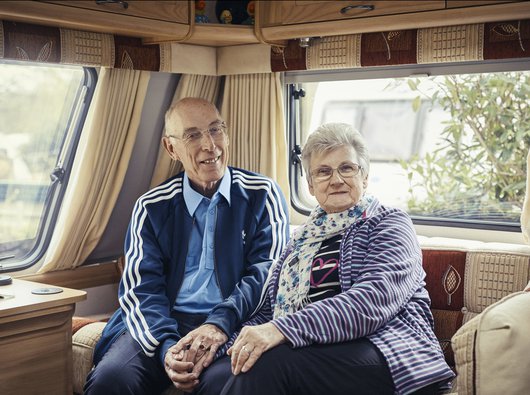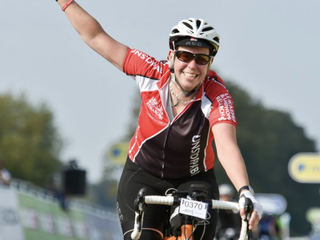What to expect on active monitoring
If your doctor recommends active monitoring, you’ll have regular check-ups to monitor the blood cancer and your general health. It’s normal to feel anxious in the months, weeks or days leading up to your appointments, but knowing what to expect from these check-ups can help.
What will happen at my appointments?
At each appointment, your doctor or nurse will check to see if you’ve developed any new symptoms and run some tests.
The tests you have and the length of time between your check-ups will depend on the type of blood cancer you have and how it’s affecting you. If you’re not sure how often your appointments will be, ask your specialist, your clinical nurse specialist or your GP.
If you develop new symptoms or your blood counts change, your doctor may decide to shorten the length of time between your appointments or recommend that you start treatment.
Read more about how doctors monitor different types of blood cancer by selecting a type of blood cancer.
Where will I go for my appointments?
The doctor you see when you’re diagnosed will explain where you will have your appointments. Your appointments might happen:
- at the hospital or clinic with a doctor specialising in blood cancer (a consultant haematologist)
- at the hospital or clinic with a clinical nurse specialist
- by phone or video call with your doctor or clinical nurse specialist
- at your GP surgery with a GP or practice nurse.
Some people have all their appointments in one place, while others will have a mix of different appointments. For example, you might go to your GP surgery for blood tests, and then have a hospital appointment to discuss the results.
Video and phone appointments
It’s getting more common now to have appointments by video call or phone. Your doctor will only suggest these if they feel it’s safe and appropriate for you. Many people find it convenient to have virtual or phone appointments. But you can ask to have your appointments face to face if you prefer.
Blood Cancer UK ambassador Paul Carless, who is living with chronic myeloid leukaemia (CML), has been having virtual consultations with his clinical team. He gives his top tips for making virtual appointments work for you:
- Make sure you know what to expect. Read any instructions you’ve been sent and get familiar with what you’ll need to do on the appointment day.
- Choose where you will sit and check you have a good Wi-Fi or phone signal. There might be certain rooms in your home where it’s better. With Wi-Fi, it can help to sit close to your Wi-Fi router, or even plug your device into the router directly using an ethernet cable.
- Think about where you will position yourself. Don't sit with a window behind you, as you’ll be harder to see. Make sure there is enough light on your face so your clinical team can see you. Sit somewhere quiet and try to make sure you won’t get interrupted.
- Before your appointment, have a glass of water or cup of tea ready. Have a notepad and pen with you, and anything else you might need or want.
- Send any questions or concerns you have to your clinical team in advance, if you can. Then you can relax a bit knowing you’ve helped to set the agenda. Or have your questions written down before the appointment, so you don’t forget to ask anything.
- Be honest and clear about any side effects or worries you have – it’s not as easy on screen for your healthcare team to see how you are, so make sure you tell them.
- Take notes during your appointment, so you remember what was said. You might find this easier at home than in a face-to-face appointment.
- Try not to worry if you have technical problems like a bad internet connection. Your team can always switch to a phone call if need be. It might help to ask them in advance what the back-up plan is if your internet drops out – check they have an up-to-date phone number for you.
"The consultant said; we’re going to put you on something called ‘watch and wait’, which means that we’ll monitor you and wait to see if your condition changes. If that happens, we’ll start treatment – but not until then.”
Elizabeth, whose husband Trevor has been on active monitoring for CLL since 2011.
Read their story here.

Getting the most out of your appointments
If possible, it’s a good idea to bring someone with you (or have someone with you on the call) so they can write things down while you chat to the doctor or ask questions you might not think of. Don’t worry if there isn’t anyone who can come with you, as there may be a nurse who can sit with you while you see the doctor.
You may also find it helpful to bring a notebook with you so you can jot down notes. Between your appointments, you could use this notebook to write down any new symptoms you experience, medication you’re taking, or questions you have, so you have this information to hand when you see your doctor.
Waiting for your test results
It’s natural to think or worry about test results before you get them. Here are some tips for managing this:
- Distract yourself – Get engrossed in an activity you enjoy, something that’s achievable but needs a bit of mental or physical effort, or both. This might be a DIY or craft project, an exercise programme, gardening or reading.
- Unwind and relax – If you find it difficult to concentrate, something that needs less effort might work better, like watching TV shows or films, reading magazines or chatting to friends about other things. Anything that will take your mind off your worries for a period of time will help.
- Say your worries out loud – you might prefer the more direct approach of talking through the possible outcomes of your test results and your feelings about them. Expressing your worries out loud can often help you manage them.
- Techniques for managing anxiety – If you’ve experienced anxiety in the past, you may already know some self-help techniques you can use. If not, or you need a reminder about different things to try, you’ll find a range of ideas on our page about mind and emotions.
Anxiety around waiting for test results is a common topic of conversation with our Support Service, and on our online community forum. Contact us if you want to talk through your fears.
Symptoms to look out for
It’s important to let your doctor know if you notice any change in your symptoms while you’re on active monitoring.
People with different conditions will have different symptoms, and not everyone with the same condition will share the same experience. However, in general, you should look out for:
- painless, persistent swellings or lumps
- unexplained fever
- drenching night sweats
- unexpected weight loss
- frequent infections
- unexplained tiredness
- new bruising or bleeding
- weakness
- new bone pain.
The symptoms listed here are only a guide. You should contact your healthcare team straight away if you experience any new symptoms, whether they’re listed here or not, or if you feel increasingly unwell.
Find out more about symptoms for specific conditions by selecting a type of blood cancer.
Many people also find it helpful to note down how they’ve been feeling in a symptoms diary. This helps you notice if anything changes and makes it easier to report any symptoms to your doctor. It’s important to tell your doctor if anything changes. It doesn’t necessarily mean the blood cancer is progressing – your doctor will look at a range of things before deciding whether you need treatment.

